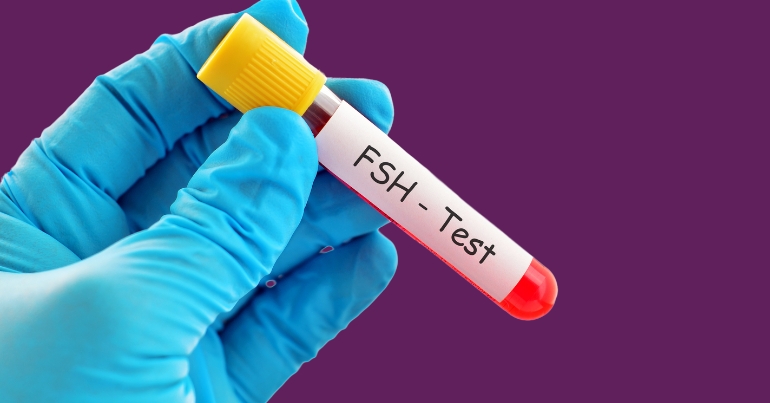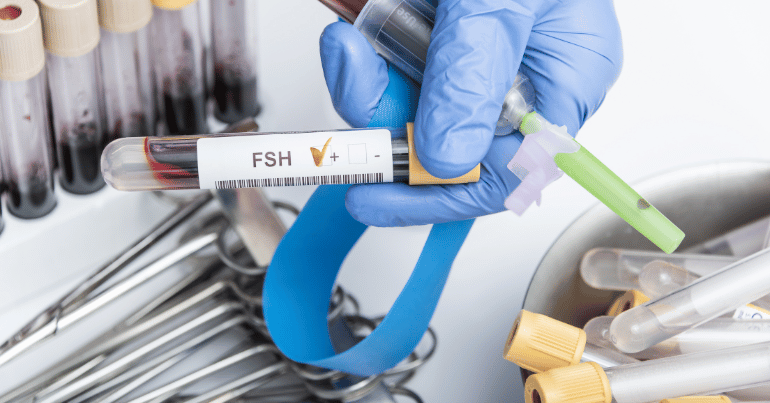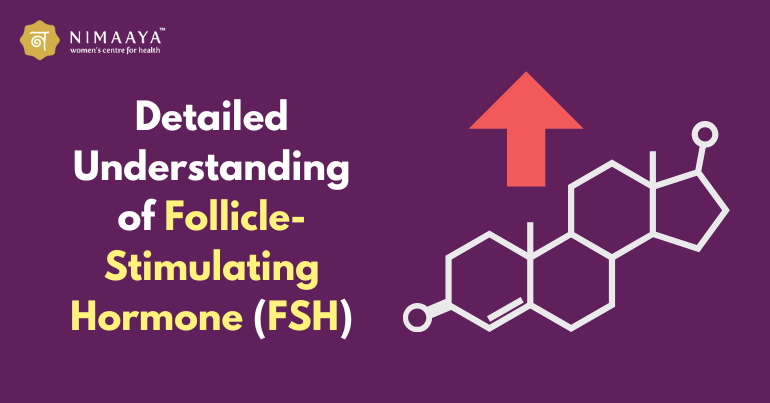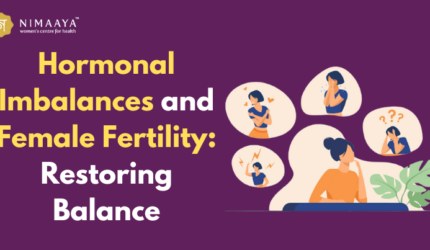Follicle-stimulating hormone (FSH) is an important hormone in human reproduction. It governs important processes such as follicle development in females and sperm production in males. Hence, any variation in the FSH levels may indicate the presence of various reproductive health disorders that may lead to infertility. It contains a detailed checklist of everything FSH – its functions, its role, and its relevance in managing fertility treatment.
Introduction to FSH

In both males and females, follicle-stimulating hormone (FSH) plays a crucial role in maintaining the reproductive system’s function. This hormone originates in the pituitary gland and is responsible for controlling the development of the ovarian follicle in women, while it is associated with the formation of sperm in men. Along with LH such hormones are called gonadotropins as they govern normal reproductive cycles and fertility.
The concentrations of FSH are a critical factor when examining the reproductive system, particularly in females who are planning on becoming pregnant or experiencing disruption of normal hormonal patterns.
Production and Regulation of FSH
FSH emanates from the anterior lobe of the pituitary gland. The hypothalamus also influences FSH synthesis and release by secretion of GnRH. When FSH is produced, there is an increase in the number of ovarian follicles in females and an increase in Sertoli cells in males (which help in the production of sperm). Its secretion is pulsatile and follows a cycle, especially in females.
Hence the regulation is by feedback mechanisms: In the case of females, the growing follicles secrete estrogen which has a negative feedback on FSH. Therefore FSH is inhibited when estrogen concentration goes up and after ovulatory estrogen is reached there is a positive feedback surge of FSH and LH leading to ovulation.
Females produce high levels of estrogen, while males produce considerable levels of testosterone. In the case of males, testosterone has a negative feedback effect on FSH. FSH levels are controlled by negative feedback when testosterone levels are sufficient to prevent excessive stimulation of the testis.
Follicle-stimulating hormone function
Among Females
The main role of FSH in females is the growth and maturation of ovarian follicles containing the eggs. During the child-bearing years of a female, FSH plays the most important role in the variations of the menstrual cycle and ovulation.
The follicular phase:
In the first half of the menstrual cycle, the FSH hormone helps in the development and maturation of ovarian follicles.
Ovulation:
FSH is released in large quantities along with Luteinizing Hormone and this is important for the process of ovulation involving the release of an egg from the ovarian follicle.
Luteal phase:
After the process of ovulation is complete and the levels of Follicle follicle-stimulating hormone decrease, the corpus luteum starts to produce the hormone progesterone whose purpose is to prepare the endometrium of the uterus in case of any fertilization.
FSH levels are tracked in cosmetic reproductive medicine to determine the ovarian reserve of the woman in other words ability of a woman’s ovaries to furnish fertilizable eggs.
Among Males
In males, the FSH hormone enhances the process of the formation of sperm. FSH hormone acts on Sertoli cells in the testes and assists in the production of sperm cells. In the absence of sufficiently high levels of FSH for a prolonged period, the production of sperm will be reduced, resulting in lower levels of fertility.
Normal Range of FSH Levels
The appropriate understanding of FSH levels is also paramount in the assessment of reproductive health. Levels of FSH are affected by age, sex, and in the case of women also the menstrual cycle.
Women FSH Levels
In ages associated with reproduction:
Nondominant follicle phase (Day 1-14) FSH range:
3.5-12.5 IU/L IIT Unit ovulation (Days 14 to 16) phase: FSH level ranges from 4.7 to 21.5 IU/L.
Secretory phase (day 16-28):
FSH levels are from 1.7 to 7.7 IU/L.
Since there is a lack of ovarian stimulation in these women, FSH levels are drastically elevated above 25 IU/L. In certain women reaching 40 IU/L, post-menopausal levels have been reached.
Men FSH Levels
In the adult male, the normal range is 1.5-12.4 IU/L. After reaching puberty, FSH levels in men do not show extreme variations. If the laboratory results show abnormalities, testicular or pituitary gland pathology is highly considered.
FSH Blood Test

A blood test for FSH assesses the concentration of circulating blood hormone levels test tends to be performed often to investigate fertility, detect reproductive system disorders, and evaluate gonads.
Purpose To identify causes of childbearing difficulties, usually in females with infertility. To determine how many eggs a woman has left. To investigate the stages of reproductive aging female reproduction age – stage of perimenopause/menopause.
To rule out diseases such as polycystic ovary syndrome or premature ovarian insufficiency in girls or women. In males, to evaluate the quantity of spermatogenesis as well as testis function.
Preparation For Women: Usually the third day FSH levels are drawn and analyzed, acceptably to measure the baseline FSH levels which indicate how much ovarian reserve is left. It can be done in men and for men there are no such boundaries – no cycle and no preparation is necessary, some medicines or dietary supplements might change the outcomes, however.
Procedure A healthcare assistant takes the blood from the patient’s arm. The results would be ready in less than a week.
Interpreting FSH Results
Elevated FSH Levels
In Females:
The excessive levels of FSH in females point towards an inadequate response of the ovaries to hormonal stimulation, which means a poor ovarian reserve. It may also be an indication that the woman is already in the menopausal age or has primary ovarian insufficiency (POI).
In Males:
Elevated levels of FSH in males may mean that there is testicular failure primarily due to the tissue in the testes being damaged and unable to produce any sperm.
Depressed FSH Levels
In Women:
Depressed levels of FSH in women may be due to a hypothalamic or pituitary impairment that influences the synchronized release of reproductive hormones. It can also be due to a positive pregnancy test.
In Men:
Low levels of FSH in men may suggest secondary causes of hypogonadism where the testes are not adequately stimulated by the pituitary for normal spermatogenesis.
FSH and Fertility
Female Infertility
In females, follicle-stimulating hormone is necessary for the control of the ovarian cycle. It is important to note that elevated levels of FSH are associated with low reserves of oocytes, which complicates efforts to achieve pregnancy. This is especially the case for women who are undergoing fertility treatments since their FSH levels are usually monitored in order to manage ovarian stimulation protocols effectively.
Men’s Reproductive Health
In men, normal physiologic levels of FSH are essential for sperm production. FSH deficiency may lead to low sperm counts, whereas elevated levels of FSH may imply injury to the testes.
Conditions Associated with Abnormal FSH Levels
Polycystic Ovary Syndrome (PCOS)
PCOS is a condition that results in a disruption of the normal composition of hormonal levels, which encompasses aberrant follicle-stimulating hormone concentrations. Usually, the level of FSH is subnormal, while the level of LH is heightened. Consequently, this leads to anovulatory cycles, which is a common predisposing factor of infertility.
Primary Ovarian Insufficiency (POI)
Women diagnosed with POI are able to reach menopause before forty years of age and it is commonly referred to as premature ovarian failure. This condition presents with increased FSH levels associated with diminished ovarian activity.
Hypogonadism in Men
Hypogonadism happens either as the consequence of primary failure of the testes (common with high FSH) or due to secondary failure caused by the pituitary gland (which is low FSH). It causes low sperm as well as testosterone levels.
Managing FSH Abnormalities
Hormonal Therapies
In the case of women, Clomiphene (Clomid) and Letrozole are often prescribed to maintain appropriate levels of FSH and to induce ovulation.
In the case of males, hormonal therapy can encourage sperm production when there is an issue with low follicle-stimulating hormone levels.
Dealing With The Menopause Impact
Correct Nutrition:
A proper diet, abundant in nutrients is expected to maintain the balance of hormones. It is evident, that foods that have high antioxidant and omega-3 concentration are good for the reproduction system.
Corporal Weight:
Healthy weight should be strived for since growth hormone regulation will be interfering if an individual is overweight or underweight.
Coping With Stress:
Excessive stress can also impact the hypothalamus hence inhibiting FSH secretion. Stress management practices like meditation, yoga, and regular workouts are helpful.
Associative Descriptions of Male and Female FSH Levels and Other Factors ‘Reproductive Function’ 26 s.4.
For women, it has been established that follicle-stimulating hormone levels start to rise in their mid-thirties (especially during perimenopause), which is in line with the expected physiological alterations from an epidemiological perspective. A clear and stereotypical fall in plasma gonadotropins is observed in patients taking all the available forms of »
New Toward Truly Evidence-Based Medicine: New Tools or New Techniques? “Reproductive Function” 26 s.4.
Conclusion
The follicle-stimulating hormone, or FSH for short, is of utmost importance when it comes to reproductive health because it is responsible for the growth of eggs in women and even the formation of sperm cells in men. In other words, testing for and understanding the levels of FSH can give ideas on how fertile an individual is and any expected reproductive problems. It is important to note that abnormal levels of FSH hormones can be helpful in the treatment and diagnosis of infertility, menopause, and other hormone complications.
Nimaaya IVF Center in Surat, under the guidance of Dr. Yuvrajsingh Jadeja, and Dr.Pooja Nadkarni offers advanced fertility treatment options for conditions related to abnormal FSH levels. Diminished ovarian reserve, PCOS, and male infertility are all addressed with the leading-edge individualized approach found at the Nimaaya IVF Center, maximizing the chances of conception and the healthy course of pregnancy.


